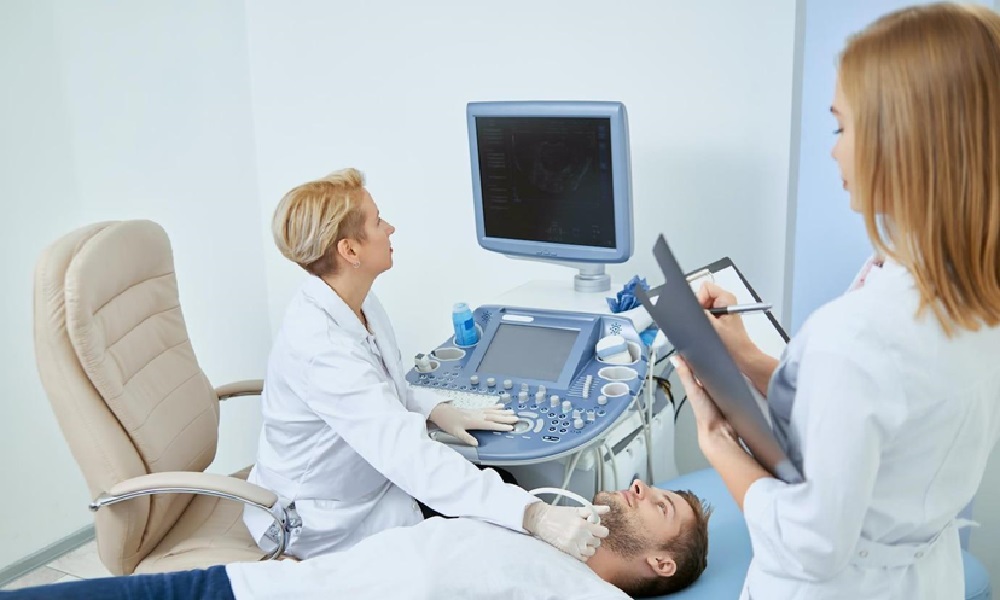The Importance Of Accurate Cancer Tests
Cancer, a persistent and stealthy adversary, has long eluded early detection. However, recent advances in medical technology are turning the tide. Accurate cancer tests are now crucial in this battle, offering unprecedented precision in the early detection of cancer cells. Early detection is pivotal, allowing for more effective treatments and improved outcomes.
These tests empower patients with critical information, enabling informed decisions and timely medical interventions. They also assist healthcare providers in crafting personalized treatment plans tailored to individual genetic profiles. This precision ensures optimal treatment timing and enhances the likelihood of successful outcomes in the fight against cancer.
Understanding Different Types Of Cancer Tests
Cancer’s complexity demands various diagnostic tests to address multiple needs. Biopsies are essential for diagnosing solid tumors by removing and analyzing tissue samples, providing insights into the disease’s stage and aggressiveness. Blood tests offer a non-invasive approach to detect cancer cells or monitor treatment effectiveness by analyzing biomarkers in the bloodstream. Genetic and genomic tests examine an individual’s genetic profile to identify mutations or alterations that may increase cancer risk. This allows for personalized prevention and treatment strategies, especially for those with a family history or higher genetic risk. These tests enable precise diagnosis, effective treatment planning, and better cancer management.
Benefits Of Early Cancer Detection
Early cancer detection through cancer testing has significant benefits, primarily increasing the chances of successful treatment and long-term survival. Identifying cancer in its early stages usually means the tumors are smaller, less likely to have spread, and more responsive to treatments such as surgery, radiation, or targeted therapies. These early interventions tend to be less invasive and have fewer side effects, enhancing the patient’s quality of life.
Additionally, early detection can reduce the financial burden of cancer care by avoiding the need for extensive, costly treatments associated with advanced-stage cancer. Accurate cancer testing also empowers individuals to take proactive steps in managing their health, leading to informed decisions and better overall outcomes.
Common Misconceptions About Cancer Tests
Despite advances in cancer testing technology, misconceptions persist. One common misunderstanding is that cancer tests are always 100% accurate. While they have improved, false positives and negatives can occur, making it necessary to interpret results in the context of the patient’s overall health. Another misconception is that tests are only needed if there’s a family history or symptoms, but cancer can affect anyone, making regular screenings crucial. Concerns about cost and insurance coverage may deter individuals, but financial assistance and coverage options are often available. Exploring these resources and discussing options with healthcare providers can help ensure access to necessary screenings.
Factors To Consider When Choosing A Cancer Test
Choosing the proper cancer test involves evaluating the type of cancer, the test’s accuracy, cost and accessibility, and the test’s comfort and convenience. Different cancers need different diagnostic approaches, and test performance varies in sensitivity and specificity. Consider financial options like insurance coverage, and weigh how invasive the test is. Consulting healthcare professionals will help in selecting the most suitable and practical test.
The Role Of Technology In Improving Accuracy Of Cancer Tests
Advancements in cancer testing have greatly improved accuracy and reliability. Key innovations include AI, which enhances detection by analyzing complex data patterns, and advanced genetic testing that insights into cancer risk through DNA sequencing. Enhanced imaging technologies, such as MRI, PET, and CT scans provided by Tellica Imaging (https://tellicaimaging.com/), enable better tumor visualization for more precise diagnoses. Additionally, liquid biopsies are a noninvasive alternative for detecting cancer-related biomarkers in the blood, improving early detection and monitoring.
Promising Advancements In Cancer Testing
Cancer diagnostics is advancing rapidly, with promising innovations poised to enhance accuracy, accessibility, and effectiveness. Liquid biopsies, which analyze cancer-related biomarkers in the blood, offer a non-invasive alternative to traditional tissue biopsies, providing a dynamic view of the disease. Multi-cancer early detection (MCED) tests enable simultaneous screening for various cancers from a single blood draw, potentially catching the disease early. Genetic and genomic testing advances allow personalized cancer care based on an individual’s unique genetic profile. Integrating AI and machine learning improves diagnostic accuracy by analyzing extensive medical data to detect cancer patterns and anomalies.
Steps To Take After Receiving A Positive Cancer Test Result
Receiving a positive cancer test result can be overwhelming, but it’s essential to approach the situation with a proactive mindset. Consult a qualified oncologist to confirm the diagnosis and develop a personalized treatment plan. Actively engage in your care by asking questions, understanding your options, and considering second opinions if necessary. Build a strong support network of family, friends, and support groups to provide emotional and practical assistance. Additionally, focus on maintaining your physical and mental well-being through a healthy diet, regular exercise, and stress management, as these can positively impact your treatment and overall quality of life.
Support And Resources For Individuals Undergoing Cancer Testing
Navigating cancer testing can be overwhelming, but various support systems and resources can help guide you through the process. Establishing a solid relationship with healthcare providers, such as oncologists and nurses, is crucial for receiving expert guidance and managing physical and emotional challenges. Additionally, national organizations like the American Cancer Society and local support groups offer valuable information, financial assistance, and peer support. Online resources, including websites and mobile apps, provide educational materials and connect you with others facing similar challenges. Involving family and friends in your journey can offer emotional support, practical help, and advocacy, ensuring you have a robust network throughout your cancer testing and treatment.
Conclusion: The Future Of Accurate Cancer Tests
The future of cancer testing is bright, with advancements in multi-cancer early detection (MCED) tests, liquid biopsies, and artificial intelligence (AI) promising significant improvements. MCED tests can screen for multiple cancers from a single sample, enhancing early detection. Liquid biopsies offer non-invasive monitoring through blood samples, while AI enhances data analysis for more precise insights. These innovations are set to transform cancer detection and treatment, leading to earlier interventions and better patient outcomes.



